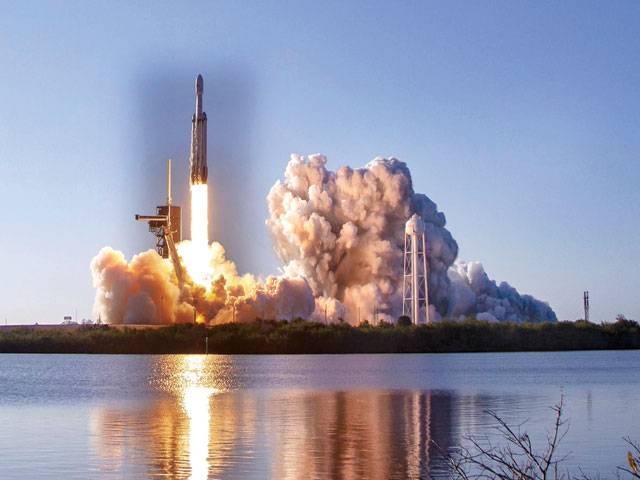MANHATTAN BEACH, CA-Upper-level winds over Cape Canaveral in Florida forced Hawthorne-based SpaceX Wednesday to delay the first commercial launch of its Falcon Heavy, billed as the most powerful rocket ever assembled.
The rocket, carrying a communications satellite, was originally scheduled for launch at 3:35 p.m. California time, but it was pushed back to 5 p.m. due to wind conditions. SpaceX founder Elon Musk wrote on Twitter around mid-afternoon that the launch would have to be scrubbed if the winds failed to let up.
The winds never did subside, and by late afternoon, the launch was canceled. SpaceX will try again Thursday, with the launch window again opening at 3:35 p.m. California time.
When the rocket launches, it will be the second flight for Falcon Heavy. The massive rocket, which is actually an array of three of the company’s Falcon 9-type rockets, made its debut in February 2018 when it launched a cherry-red Tesla roadster with a “Starman” space-suited driver propped behind the wheel on a test mission.
The next launch, however, will be the first commercial use of the Falcon Heavy. The rocket is scheduled to carry a 13,200-pound Arabsat-6A satellite into orbit, providing communications services to areas of Africa, Europe and the Middle East.
The 230-feet-tall, 27-engine Falcon Heavy is essentially triple the size of SpaceX’s traditional Falcon 9 rockets. According SpaceX, the liftoff thrust of Falcon Heavy is roughly equivalent to 18 full-powered 747 jetliners.
Musk has called Falcon Heavy “the most powerful rocket in the world by a factor of two and the highest payload launch vehicle to reach orbit after the Saturn V moon rocket.”
The Falcon Heavy includes a massive center rocket booster, coupled with two side rocket boosters. The most visually spectacular part of last year’s Falcon Heavy mission occurred when SpaceX successfully landed the two Falcon 9 side rockets simultaneously back on land at Cape Canaveral following the launch. The company attempted, but failed, to recover the center booster rocket on a barge floating in the Atlantic Ocean.
SpaceX has become known for recovering its rockets for reuse in future missions. The company will again attempt to recover all three of the rockets in the array on Thursday -- two on land and one at sea.
The Arabsat-6A launch had been scheduled for Tuesday, but SpaceX pushed back the launch by a day, also due to bad weather.






